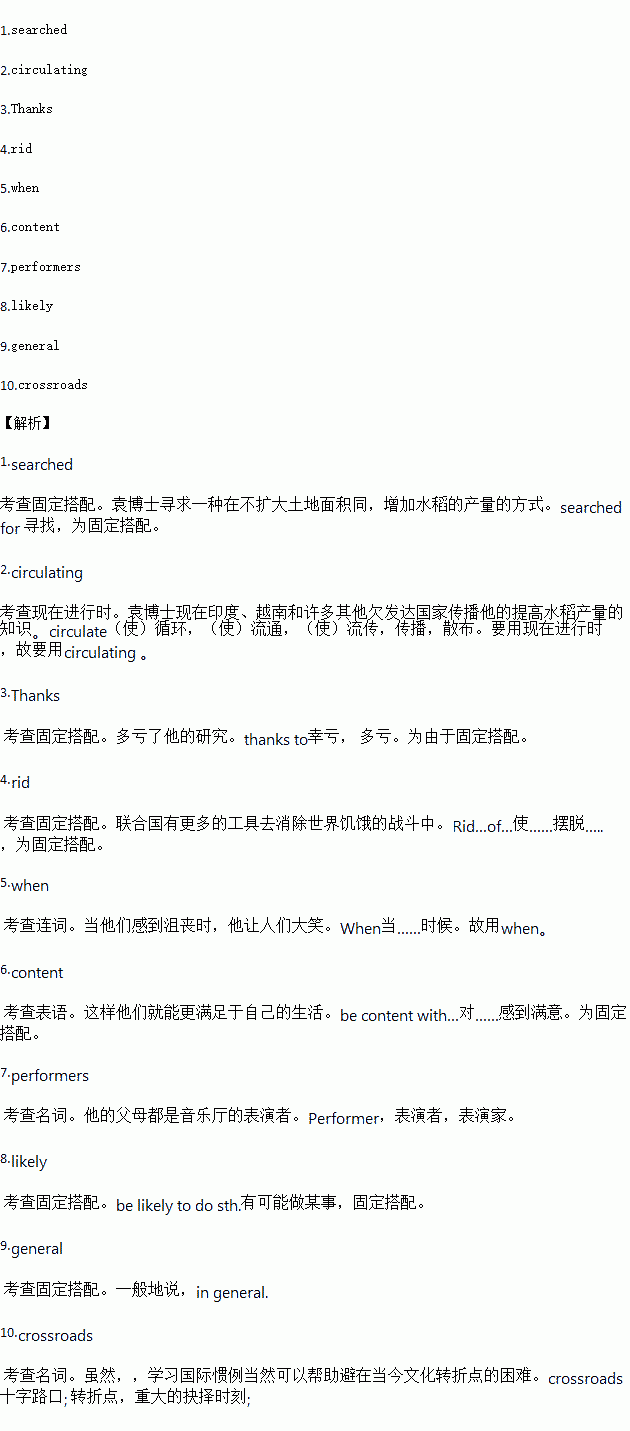题目内容
Dr.Yuan 1. for a way to increase rice harvests without expanding the area of the fields...Dr. Yuan is now 2. his knowledge in India, Vietnam and many other less developed countries to increase their rice harvests... 3. to his research, the UN has more tools in the battle to4. the world of hunger.
He made people laugh at a time 5. they felt depressed, so they could feel more6. with their lives...His parents were both music hall 7. .
However, people from places like Spain, Italy or south American countries approach others closely and are more8. to touch them.
In 9. , though, studying international customs can certainly help avoid difficulties in today’s world of cultural 10. .
练习册系列答案
 天天向上一本好卷系列答案
天天向上一本好卷系列答案 小学生10分钟应用题系列答案
小学生10分钟应用题系列答案
相关题目

